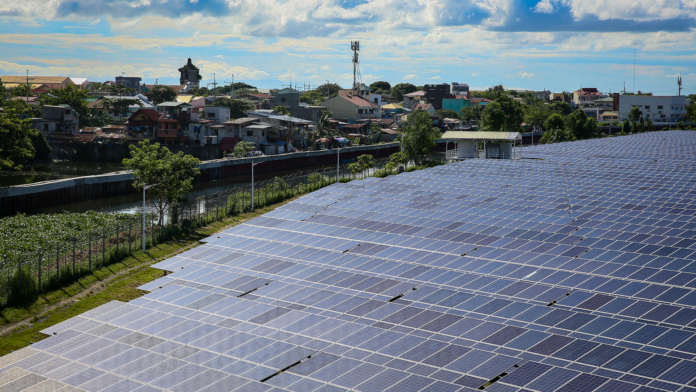The Philippines, the United States and Japan on Friday (Manila time) expressed intent to advance their trilateral cooperation on clean energy.
The commitment was made during the historic trilateral summit of President Ferdinand R. Marcos Jr., US President Joe Biden and Japanese Prime Minister Fumio Kishida at the White House in Washington DC.
In a joint statement, the three leaders acknowledged the existential threat of the climate crisis, and cited the need to take urgent action to reduce greenhouse gas emissions in line with a 1.5 degrees Celsius warming limit, and accelerate efforts to build clean energy economies.
“Our three nations seek to expand trilateral cooperation in the Philippines on the deployment of clean energy technologies, including renewable energy projects such as solar and wind, to support energy requirements in the Philippines and help ensure a just energy transition,” they said.
“Japan, the Philippines, and the United States are working together to expand cooperation for the transition to clean energy and create high-standard, clean energy supply chain jobs across our three nations through the mutually beneficial development of resources in clear, transparent, and fair market competition with strong protections for labor rights and the environment.”
Marcos, Biden and Kishida also sought to expand the three nations’ partnership on safe and secure civil-nuclear capacity building, as they recognized the Philippines’ request for further training and capacity building for nuclear scientists, engineers, and relevant personnel and policymakers.
Under the Foundational Infrastructure for Responsible Use of Small Modular Reactor Technology (FIRST) program, the US and Japan plan to co-host a nuclear energy study tour in Japan for nuclear experts and policy decision-makers from the Philippines and other FIRST partner countries.
“We also plan to deepen trilateral cooperation on civilian nuclear workforce development through a trilateral dialogue this year, to advance the Philippines’ civil nuclear energy program,” the three leaders said.
They welcomed the first Nuclear Energy Summit in Brussels on March 21. Over 35 countries, including Japan, the Philippines, and the United States, will participate in the event.
They also expressed support for critical minerals industries as a way to promote resilient and reliable global supply chains for critical minerals.
“We share the goal of producing and supplying battery materials and batteries for electric vehicles and energy storage systems for the global marketplace. The United States, under the International Visitor Leadership Program, plans to manage a clean energy supply chain training program for select participants from Japan and the Philippines,” they said.
“In addition, the United States and Japan look forward to the Philippines being a founding member of the Minerals Security Partnership Forum, which signifies an important step towards securing and diversifying our collective clean energy supply chains.”
Reduction of nuclear risks
Meantime, Marcos, Biden and Kishida called for the complete denuclearization of the Korean Peninsula, as they condemned the North Korea’s “escalatory threats and unprecedented number of ballistic missile launches, including multiple intercontinental ballistic missile launches, which pose a grave threat to peace and security.”
They said North Korea’s actions have “severe security implications” for the Indo-Pacific and European regions.
“We strongly urge the DPRK to comply with the relevant UN Security Council resolutions, and refrain from continued development, testing, and transfer of ballistic missiles to any country, including Russia, which has used these missiles against Ukraine,” they said.
“As we continue to affirm our commitment to international law, including the United Nations Charter, we reiterate our unwavering support for Ukraine’s sovereignty, independence, and territorial integrity within its internationally recognized borders.”
They said the threats of nuclear weapon use in the context of Russia’s invasion of Ukraine are “unacceptable,” adding that any use of a nuclear weapon “would be completely unjustifiable.”
“To that end, we recall the United Nations General Assembly resolutions stating that no territorial acquisition resulting from the threat or use of force shall be recognized as legal,” they said.
They also urged nuclear weapon states to promote stability and transparency, as well as engage in substantive dialogue on reducing nuclear risks.
“We reaffirm our joint pursuit of a world without nuclear weapons, with the Nuclear Non-Proliferation Treaty as its cornerstone,” the three leaders said.
“As founding members of the ‘FMCT (Fissile Material Cut-Off Treaty) Friends,’ we also call for the immediate commencement of long-overdue negotiations on a treaty banning the production of fissile material for nuclear weapons.” (PNA)
Photo credit: Win Gatchalian Official Website


